On the morning of February 7, 2023, the First Meeting of the Academic Advisory Committee and the Seminar on Construction Scheme of the Ministry of Education · Chongqing Collaborative Innovation Center for Deep Space Exploration (the "Collaborative Innovation Center") was held at Chongqing University. More than 60 academicians, experts and scholars gathered at the event to discuss the frontier deep space technology and contributed ideas for the development of the Collaborative Innovation Center.
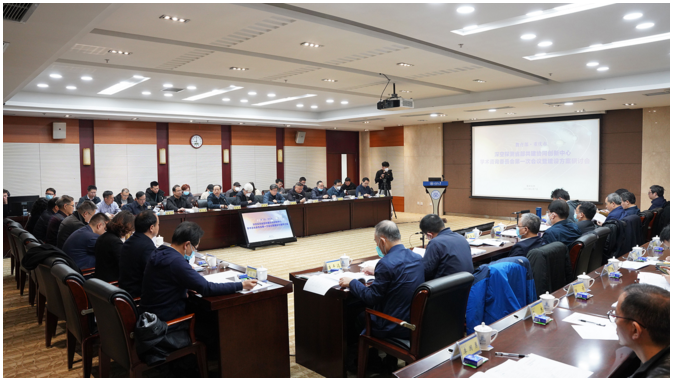
Academician Qi Faren, Academician Bao Weimin, Academician Zhu Guangsheng, Academician Zhou Zhicheng, Academician Cao Xibin, Academician Jia Zhenyuan, Academician Wang Chi, and Academician Yu Dengyun appeared at the event in person, while Academician Wang Liheng, Academician Zhong Zhihua and Academician Wang Jianyu participated by virtual means. Wang Shuxin, President of Chongqing University and an academician of the Chinese Academy of Engineering, Wang Shilong, Executive Deputy Secretary of Chongqing University, Yang Weijun, Deputy Director of Chongqing Municipal Education Commission, Ma Qichang, Deputy Director of the Office of the Military-Civilian Integration Development Commission of CPC Chongqing Municipal Committee and a first-level inspector, Deputy Director of Chongqing Science and Technology Bureau, and Mou Xiaoyun, a first-level inspector, showed up at the opening ceremony. Dozens of academicians, experts and researchers from China Academy of Launch Vehicle Technology, Shanghai Academy of Spaceflight Technology, Academy of Aerospace Liquid Propulsion Technology, Science and Technology Commission of China Aerospace Science and Technology Corporation, Beijing University of Aeronautics and Astronautics, Beijing Institute of Technology, Harbin Institute of Technology, Zhejiang University, and Dalian University of Technology participated in the event. Li Jian, Vice President of Chongqing University, presided over the opening ceremony.
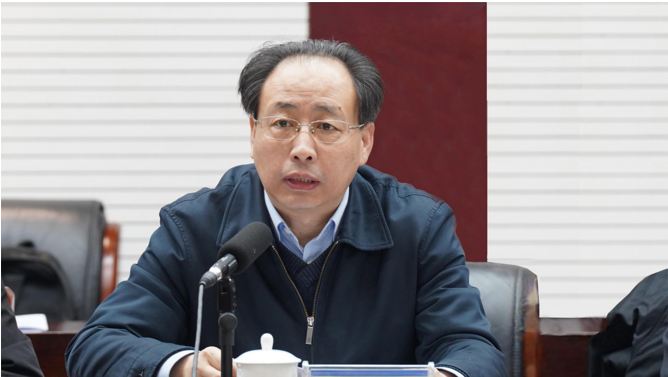
Wang Shuxin extended a warm welcome to the experts present at the event on behalf of Chongqing University. According to Wang, Chongqing University always sticks to its mission to "study academics, nurture talents, rejuvenate the state and guide the society", responds quickly to the strategic need of the country, and is actively involved in scientific research tasks of major projects in the field of China's aerospace. Deep space exploration is a frontier field closely related to the strategic demand of China, and plays an important guiding role in terms of discipline, talents and industrial economy. Chongqing University will focus on the frontier science and technology issues of deep space exploration, offer substantial support to construction of the Collaborative Innovation Center, and build a team of scientific research talents to serve the national strategic need and bolster the scientific and technological innovation of Chongqing, as well as the eco-social development.
Ma Qichang said that the Collaborative Innovation Center brought frontier technology and new blood to Chongqing's integration of defense and civilian technologies sector. The Office of the Military-Civilian Integration Development Commission of CPC Chongqing Municipal Committee is going to strengthen service, give their full backing and make contribution to the technological development in the deep space exploration sector.
According to Yang Weijun, as a university under the "Double-First-Rate" Construction Program, Chongqing University has been shouldering responsibility for scientific and technological innovation and talent nurturing. The Collaborative Innovation Center, drawing on its disciplinary advantages, will work to serve the major strategic demand of China and the rapid development of Chongqing. At the same time, Chongqing Municipal Education Commission will continue to give full support to the Collaborative Innovation Center.
Mou Xiaoyun said that founding of the Collaborative Innovation Center was the first move to shape the building of the industry in the future. It will have the full backing of Chongqing Science and Technology Bureau. The Bureau will work with involved parties to build innovation platforms, foster the in-depth integration of colleges universities, scientific research institutes and enterprises of Chongqing, and provide prime power of science and technology that drives the eco-social development of Chongqing.
In a speech delivered by virtual means, Zhong Zhihua referred to the Collaborative Innovation Center as a new mechanism that gives full play to the advantages of Chongqing University in training of scientific research talents to study the frontier technology in the deep space exploration sector. Zhong went on to express his hope that the Collaborative Innovation Center makes active efforts to explore a high-quality development path and power the high-standard scientific and technological development of the country.
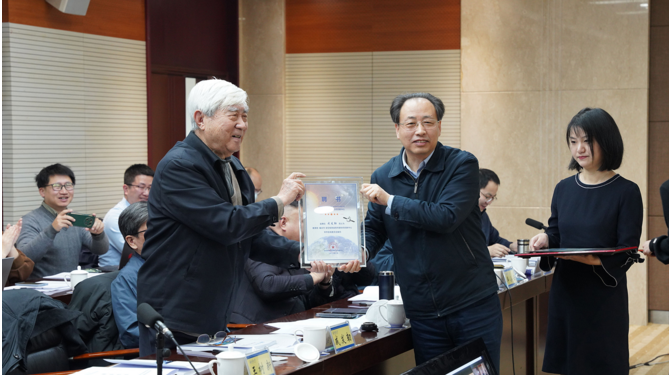
Wang Shuxin presented the Letter of Appointment to Academician Qi Faren, the representative of advisors of the Academic Advisory Committee of the Innovation Center, and Academician Bao Weimin, Chairman of the Academic Advisory Committee.
After that, Bao Weimin delivered a speech and chaired the Seminar on Construction Scheme of the Innovation Center. According to Bao, construction of the Collaborative Innovation Center is in response to the call of the country and is a move to implement the spirit of the important address of General Secretary Xi Jinping on development of China's aerospace industry. The Collaborative Innovation Center will expedite the innovation in the deep space exploration sector and make even further contribution to building a major power in space.
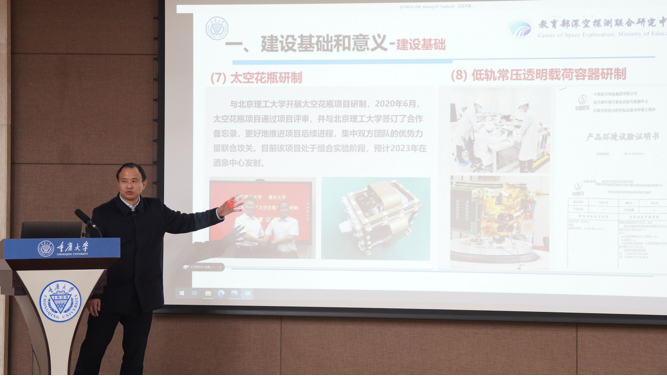
Xie Gengxin, Managing Deputy Director of the Center of Space Exploration, Ministry of Education (Chongqing University), gave a view of the construction scheme of the Innovation Center from perspectives including construction foundation and significance, strategic positioning, major construction tasks, construction plan and management mechanism. In the four-year period, the Collaborative Innovation Center will build a favorable ecological environment for the "production, study, research and application" of the deep space exploration sector in terms of organization, policy and condition, and contribute the wisdom and power of Chongqing to the deep space exploration of China and the world.
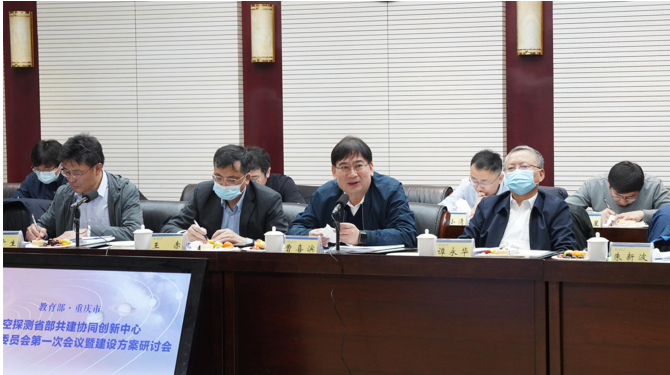
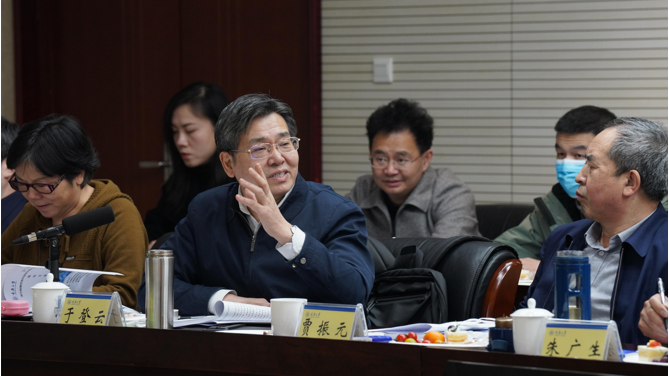
After listening to the reports, academicians and experts at the event had an in-depth discussion over the construction scheme of the Collaborative Innovation Center. They expressed whatever opinions they had, offered suggestions on improvement of the construction scheme, and contributed ideas on the development of the Center. Wang Liheng proposed to lead the scientific and technological innovation and talent nurturing by strengthening basic research. Wang also called upon the Expert Committee to really play a role and strengthen collaboration. Wang Jianyu expressed the hope that the Center would give full play to the characteristic advantages of Chongqing University to drive the theoretical research to a higher level, expand the cooperation channels and build a first-rate talent team. Qi Faren suggested that the Center should focus on key tough tasks, make major breakthroughs, promote work in all areas by drawing upon the experience gained on key points, so as to ultimately improve the independent innovation capacity. Zhu Guangsheng put forward the use of question-oriented approach to look for new opportunities in research development in the deep space exploration sector. Zhou Zhicheng called for efforts to draw on regional advantages and build upon the existing research basis of Chongqing. Cao Xibin said that the Center should make major breakthroughs in the deep space ecology sector and get actively involved in international cooperation. Jia Zhenyuan emphasized the importance of interdisciplinary advantages and response to the major strategic tasks of China. Wang Chi suggested that the Innovation Center should find ways to strengthen its research characteristics, focus more on the leading role of science and technology, and attach more importance to collaboration and cooperation. Yu Dengyun suggested pondering on the mission and responsibility of the Collaborative Innovation Center in supporting major projects of China. Major General Chen Shanguang highlighted the importance of properly handling the relationship among science, technology and engineering, so as to further identify the target positioning and breakthrough directions of the Collaborative Innovation Center.
It is reported that the Collaborative Innovation Center is approved to be established by the Ministry of Education, with construction and operation supported by the Ministry and Chongqing. Chongqing University serves as the main construction organization. The Collaborative Innovation Center focuses on space solar power stations, basic science in the extreme environment of deep space, extraterrestrial ecosystems, space ladder and other important areas. It will gather scientists from Russia, Spain, France, Germany, Italy, and Australia to overcome difficulties, pool scientific and technological innovation resources and talents from home and abroad to build an international cooperation platform for deep space exploration that concentrates on the major scientific issues, technical difficulties, major demands and tasks in the deep space exploration sector facing the entire human race. Its ultimate goal is to explore the mechanism and mode of organized scientific research and the enterprise-university-research-application precision cooperation and deliver high-standard research findings. In recent years, the Collaborative Innovation Center has seized opportunities to get extensively involved in major tasks such as manned spaceflight and lunar exploration projects, with substantial achievement made in tasks including special vehicle, lander attitude adjustment platform, manned lunar rover overall program research, lunar ladder concept research, and space station α mechanism research.
Photography: Wu Youhua
